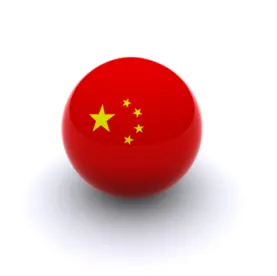Disappointment is the sentiment most expressed towards results of the February 26-27 meeting of G20 Finance Ministers and Central Bank Governors in Shanghai. One former UK official calls G20 meetings a “damp squib” — no idea what that means, but it sounds about right. Despite rising panic by the IMF, OECD and others about the possibility of another global recession, and global financial instability, the G20 failed to show any overt sign of concern. Chinese Premier Li Kequiang urged that “countries need to stand together to tide over difficulties,” but Germany dismissed the idea of coordinated stimulus and US Treasury Secretary Jack Lew argued against a “crisis response.”
The G20 communique[1] rehashes past commitments and cites “growing concerns” about global economic prospects, without the call to arms or sense of urgency that many hoped for. Markets and the Chinese Yuan both fell sharply thereafter, in a bad case of the “Mondays.” Pundits everywhere bemoaned the lost opportunity for concrete G20 action, and worried that without meaningful concerted action growth will slow further as inequality and financial stability worsen. But not so fast, could there be a sleeper in this G20 snoozer?
Perhaps in return for a bland communique that did not reference China’s currency and other challenges, late on Monday, China took steps to shore up its own growth. China slashed the amount of reserves that its banks must hold, classic monetary stimulus. And while China’s oft-criticized industrial oversupply was nowhere mentioned in the G20 Communique, China’s government also announced on Monday that about 15 percent (1.8 million workers) of its coal and steel workers would lose their jobs in efforts to reduce overcapacity. That won’t be easy. UK and German officials warned that more easy money from Central Banks are not the answer to current economic malaise, but neither explicitly to anything else. Many in Europe are focused on the June 23rd “Brexit” vote on whether the UK stays in the EU, on the politically tumultuous refugee crisis and the crisis that has caused it. The United States is in full-fledged Presidential election mania.
The G20 also committed to “2 percent additional output by 2018” and to create a system of indicators of progress and impacts of structural reforms. They called upon the multilateral development banks to quantify their ambitions to support “high-quality projects” and to mobilize long-term financing and committed to create a “global infrastructure connectivity alliance initiative.” One hopes it is not a “damp squib.” Infrastructure investment, if it can be done with fewer cost overruns and less corruption, especially if it can connect markets and innovators and cut logistics costs, would provide a boost to growth and jobs in the real economy. They also went on at length about international financial and tax reform, again, and again committed to increase bank capitalization.
These are all good things, but unless and until the G20 can take concrete steps for measureable results even without a “crisis” — as perhaps they will do on infrastructure investment and increased output — they will likely still be seen as a “damp squib.” China at least has just made a partial down-payment on its substantial growth and reform agenda. Political paralysis seems to have struck the rest, at least for now.
[1] http://www.g20.utoronto.ca/2016/160227-finance-en.html




 />i
/>i